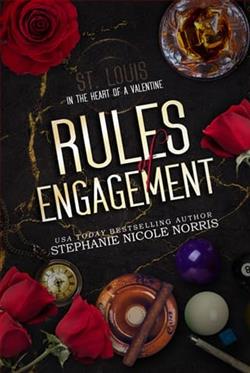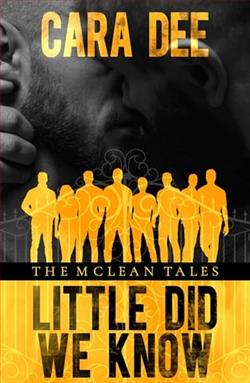Page 4 of Vendetta
I got home in record time. After depositing the pot of honey on the kitchen windowsill and trudging upstairs, I rubbed some ointment on my stinging knees and crawled into bed. After what felt like hours of staring wide-eyed at my ceiling and listening to the urgent thrumming in my chest, I fell into an uneasy sleep during which dreams of boys in windows dissolved into nightmares about shadowed figures and black-ribboned pots of honey.
CHAPTER THREETHE GOSSIP MERCHANT
There wasn’t a whole lot that irritated me. However, the source of such rare annoyance had managed to slither into my house and ruin the sunny morning barely before it began.
‘… It’s not a good omen, Celine. I have a sixth sense about these things…’
Rita Bailey’s voice, which was shriller than a police siren, had no trouble infiltrating my bedroom despite the fact she was an entire floor below me. I scowled at my ceiling. I didn’t want to hear about Lana Green’s affair, Jenny Orin’s worsening psoriasis, or the Tyler kids’ lice scandal. But the volume of the old lady’s voice had left me with no other option. I would have to suffer it either way, and, given the depressing messiness of my bedroom coupled with my desire to eat breakfast at somepoint, I decided to face her head-on and get the most unpleasant part of my day over with.
I rolled out of bed, crawling between crumpled jeans and inside-out T-shirts to fish out a partially obscured bra. Springing to my feet and swivelling around without touching anything – because sometimes I liked to make a game of it – I swooped a pair of denim shorts off the ground and pulled them on before settling on a white tank top and my favourite pair of Converse. After putting on some moisturizer and pulling my hair into a messy braid, I crept downstairs, steeling myself for what I was about to hurtle into, coffee-less and overtired.
Rita Bailey, an old, portly woman with cropped white hair and pinched, shrunken features, hunched over the kitchen table, sipping her coffee in an outrageous pink pantsuit. Beside her, my mother was politely enduring her company, offering a tight smile and a robotic head nod at appropriate times. She had even cleared part of the table, which was usually buried beneath stray sewing projects and piles of fabric samples. Now confined to just one square foot of space, they balanced precariously against the wall, threatening to topple over them.
When we lived in a spacious four-bedroom house on Shrewsbury Avenue, my mother had two whole rooms dedicated to containing the explosions of materials needed for her dressmaking, but here, her works-in-progress always seemed to spill from room to room, following us around our cramped home in every shade and pattern imaginable. Yards of Chantilly and ivory lace stretched along armchairs, jostling for space beneath mannequins in short summer dresses and rich evening gowns. On several scarring occasions since we’d moved here a year and a half ago, I had woken up screaming atthe sight of a half-finished dummy bride perched in the corner of my room, or a denim dress that should never see the light of day.
It wasn’t that my mother didn’t have some sort of system in place, it’s just that no one but her could ever figure it out. She was probably the most organized disorganized dressmaker in all of Chicago, and I think she liked it that way. Mrs Bailey, who was staring narrowed-eyed at the teetering pile of fabrics across the table, evidently did not.
I swept into the kitchen, pulling her attention away before her frown became so intense it broke her face. ‘Good morning, Mrs Bailey.’That wasn’t so bad.
She re-fixed her stare on me. ‘Good morning, Persephone.’
I winced. It had been a while since I had heard my name in its hideous entirety and, unsurprisingly, nothing had changed – it still sucked. But the way the old lady said it always seemed to make it worse, drawling over the vowel sounds like she was talking to a five-year-old child –Purr-seph-an-eeeee.
‘I prefer Sophie,’ I replied with a level of exasperation that usually accompanied the topic.
‘But Persephone is so much nicer.’
‘Well, no one calls me that.’ It wasn’t my name and she knew it. It was just a symbol of my mother’s fleeting obsession with Greek mythology, which had, rather unfortunately, coincided with the time I was born. Thankfully, my father had given up on the mouthful within the first year of my birth. It didn’t take him long to think of ‘Sophie’ as a passable alternative – the name I suspect he wanted all along and one that rendered me eternally grateful to him for two reasons: one, that I didn’t have to go through life with a barely spellable relic for a name,and two, that he didn’t nickname me ‘Persy’ instead. When my mother conceded defeat, I became ‘Sophie’ for good. Plain, simple and pronounceable.
‘How do you even know to call me that anyway?’ I added as an afterthought. For all the times Mrs Bailey had intentionally wrongly addressed me, I had never thought to ask her how she had discovered one of my best-kept secrets. Then again, she was the first person to discover the location of our new house when we moved, despite the fact we had actively tried to hide it from her,andit was nearly an hour’s walk from Shrewsbury Avenue. Maybe shewasclairvoyant after all.
‘I saw it on a letter once.’
‘Where?’
‘I can’t remember.’ She sounded affronted by the question. ‘It may have fallen out of your mailbox.’
‘Mmhmm.’Snoop, I noted mentally.
Beside me, my mother was circling the top of her mug with her finger. ‘Sophie,’ she chided gently, ‘why don’t we talk about something else?’
‘Why? Are you still trying to shirk the blame for naming me the most hideously embarrassing thing you could think of?’ Even though my voice was light, I was only half joking. Not that it seemed to matter to my mother; she found my name-based indignation inexplicably amusing. I guess it made sense. The whole joke was hers in the first place and now it was following me around through people like Mrs Bailey or Uncle Jack, who used it like a weapon when he was angry at me for taking impromptu nap breaks at the diner.
‘I think the name Sophie is just as lovely. It suits you,’ my mother pandered, smirking into her mug until all I could seewere the tips of her delicate pointed brows. I felt a tiny pang of envy for their symmetry. Everything about her was dainty and refined, like a pixie. Through the magic of genetics, she had only passed her sunny blonde hair and her heart-shaped face to me. But, by the wonder of mimicry, I had also acquired her tendency for extreme messiness and her inability to cook properly. I was reserving judgement on where my diminutive height came from, because I was still hoping to miraculously grow another three inches before my seventeenth birthday, which was rapidly approaching.
At the word ‘Sophie’ Mrs Bailey emitted a long noise of ragged disapproval. It sounded like she was choking – and, fleetingly, a small, morally devoid part of me hoped she was.
I crossed over to the countertop to fill my mug and caught sight of the honey jar on the windowsill. Streaks of sunlight winked at me through the glass, as if to say ‘Good morning!’It would be a shame not to try it, I resolved. I grabbed a spoon and pried the lid from the jar, setting aside the frayed square of cloth that covered it and taking care not to disturb the black velvet ribbon.
Behind me, Mrs Bailey was practising her favourite hobby – the art of lamenting, ‘Persephone issomuch more elegant. It might not suit her now, but she could always try andgrowinto it.’
‘Thanks, but I think I’ll just stick with Sophie and continue to live in the modern world.’ I dipped a spoon inside the jar and twirled it.
‘You looksotired this morning, Sophie,’ Mrs Bailey informed the back of my head, labouring over my name like it was difficult to pronounce.
Ignoring her taunt, as well as the civilized option to put the honey in oatmeal or on toast, I stuck the heaping spoonful of it straight into my mouth.
‘She’ll be bright and chirpy once she’s had her caffeine fix,’ my mother explained over my shoulder. The edge in her usually calm voice informed me that her patience was finally wearing thin. Even after my father’s screw-up, my mother had managed to retain her inhuman level of kindness, which meant she was still too polite to turn a sixty-something, lonely,annoyingMrs Bailey away, even when her conversation mainly consisted of disapprovals and backhanded compliments.















